Pennyblackmusic speaks exclusively to legendary guitarist Eric Bell about his musical journey, from his early influences like Lonnie Donegan and The Shadows, through to joining Van Morrison's band Them, finding success with Thin Lizzy and later collaborating with Noel Redding. Bell describes the difficult decision to leave Them, despite their success, in order to find more creative freedom. He details the challenging early days of Thin Lizzy, before their breakthrough, and his eventual departure from the band as their sound became more commercial. Bell discusses his approach to songwriting, his autobiography 'Remembering', and his plans to continue honing his craft as a guitarist and performer. PB: Eric, you're over here in the UK as part of a tour with your Eric Bell Trio. How's the tour going so far? EB: It's going pretty well.. The crowds have been pretty good. They seem to like what we do and I’ve been signing lots of stuff after the gig is over. PB: For people who haven't seen the show before, what can they expect? EB: I don't know really. It's just a mixture of music. We do all types of stuff. Blues, Jazz, Rockabilly, slow stuff, a few Thin Lizzy things. That's what we do. PB: Okay, so who were your earliest musical influences? EB: Thousands of people. Lonnie Donegan. PB: I think that's common for a lot of people that were coming up around the same time that you were. EB: He was the first one that started the fire and The Shadows, who I still absolutely love and always will. The Spotnicks from Sweden. And then all the other people, like Django Reinhardt, Wes Montgomery, Jeff Beck, you know, all those types of people. And early Clapton. Early Eric Clapton. PB: When did you decide to become professional? EB: One of the main reasons was I couldn’t handle a ‘nine to five’ existence. I tried about fifteen jobs and I just couldn't do it. It was like a different world, which I hated. And I thought, “How do I get out of here?” Music was certainly a help because I was working during the day and then I'd be playing the blues at night, which kept me sane. And then I got an offer to join this really shite show band from Belfast who were living in1 Glasgow. They were hard to describe, but we played all over Scotland and it was soul destroying, but better than a ‘nine to five’. PB: How did you jump from that to being in Them with Van Morrison? EB: Van went to England and made it and came back home to Belfast, formed a second version of Them and they went to America and came back to Belfast and broke up again. He spotted me in a shop window, this music shop in Belfast called Crymbles. Every Saturday, maybe about forty musicians would gather in the shop, but nobody bought anything. It was a meeting place. And Van Morrison walked in and everybody just stopped and he walked upstairs. He was like a sort of a mini-legend then in Ireland anyway. A few minutes later, he come down the stairs with the salesman who was upstairs, and he pointed roughly in my direction, and Van walked over to me, says, “Can I talk to you?” We went down the street. And he says, “I'm Van Morrison”. I said, “Yeah, I know.” He says, “Do you know where Hyndford Street is?” I said, “Yeah, it's about 25 minutes walk from where I live in East Belfast”. “Can you come up tonight with your guitar?” He gave me the number of the house. He went up and he just sat in front of the fire, the fireplace, with this beautiful reel to reel tape recorder. And he said, “This one's in G. Can you jam along with it?” And I said, “Yeah.” That's how I got the job. PB Had he seen you playing before then? EB: I think so, yeah. PB: Were you already writing songs at this point? EB: No. That didn't come until I started working with Brian Downey and Philip. Philip especially. I had worked very hard with him on his songs because he had a limited amount of chording and so on, but he was very good at it. I would put in little twiddly bits and ideas, and some of them he loved. So, that started me thinking about songwriting. You know, if he can do it, I can do it, type of thing. PB: Would you always approach the process in the same way or would it be different if you had an idea, you'd maybe take it to Philip or the other way around? EB: Philip and I had a house together, so I'd be sitting on the sofa, playing the guitar and Philip would walk past. He would hear it and say, “Is that yours?” and I’d say, “No, it's off somebody's album.” He just needed that little impetus. So, I'd go down to his bedroom and there'd be two acoustic guitars and we'd just work the song over and over and over again until we got it. And then Brian Downey would put in the drums. He really uses imagination in his drumming. PB: So that's how that started! When was it that you first realized that things were changing for you and Thin Lizzy? Was it when you were getting real crowd recognition and noticed that things were starting to change? EB: It happened very quickly for us. There were about eighty bands in Dublin, and they were all really good, and they'd been doing a circuit for years but staying at the same level. And we worked hard, and in a matter of months we had so many little pieces of good luck that just brought us up and up and up. Little things that just came out of the blue, like a boutique shop in Dublin would suddenly get in touch with us and say, “Do you want to model some clothes?” I don't know why or how, but we attracted a lot of stuff like that. We started playing the circuit in Ireland and then we would go around the second time, the same clubs, and I'd noticed a big crowd outside the front door. And I always would say to Philip, “I wonder who we're on with,” but the crowd was actually for us and I hadn’t realised. So, we started suddenly realising that we were onto something. And then, of course, the guy from Decca came over and heard us playing and liked what he heard and said, “Would you like to record an album in Decca Studios in London?“ Meanwhile, all these other bands in Dublin are wondering what the fuck is going on, knowing that we're taking off. We had only been around four months or something, and we were just right place, right look, right sound, right everything, I suppose. And that just took us up. PB: You must have so many highlights from the time that you were with them. You were on the iconic three albums. EB: Yeah, well, we couldn't give them away at the time. There was nobody interested at all. PB: That’s incredible when you think how they’re viewed now! EB: We recorded the first album. It didn't get slagged, but all the critics would say, “three piece from Ireland, not bad. They need to find their own direction. It's too many different songs”…and all this shit. And then the second album, ‘Shades of a Blue Orphanage’, got the same reaction. “Oh, yeah. Old Thin Lizzy from Ireland, still doing it, still mixing up all their music. What you need, lads, is defined direction.” Then the third album, ‘Vagabonds of the Westen World’, was received a little better, with some nice little reviews. We were sort of pushed into a corner and I left, and then the twin guitar line-up era started, and it was a different band completely. PB: Yeah. It was a totally different direction, wasn't it, when you left? It's certainly more commercial. EB: They had their eye on commerciality and it worked for them and they were excellent in what they did. But, thank God, about four years ago I started noticing on the internet people starting to go back to the first three albums. PB: When you stepped back from Thin Lizzy, and you decided to leave, how important was it for you to work with someo0ne like Noel Redding at the time? EB: Noel. Fucking hell. He called me up out of the blue one day. I thought it was one of my friends sending me up. He said, “Hello, mate, how are you? Can I speak to Eric Bell?” I said, “Yes, speaking.” “Hello, mate, I'm Noel Redding.” And I thought it was one of my mates pretending to be the bass player from The Jimi Hendrix Experience, you know, and after about three minutes I suddenly realized it wasn't. “You fancy coming down for a knock about?” He lived in West Cork and I lived in Dublin, so I got the train down to West Cork and he met me at the train station. He met me off the train and he says, “Do you play darts?” I said, “What?” “Do you play darts?” “Yeah, right.” “You're in the band.” He was that type of guy. Then he drove me to his house, which was fucking gigantic, in the middle of nowhere, a big Georgian farmhouse, in which half of it was falling apart, but what a place. So, I met the other two guys, the keyboard player and the drummer. And then we had our first rehearsal and Noel was out of it, smoking this really strong grass and drinking Guinness and cider. He would come over to my amplifier. Well, I was using one of his amplifiers and he would come over and go, “Fuck me, mate.” and started altering all the tones on the amp. I was playing it and no one had ever done that to me before. So, I thought, “Will I tell him to stuff it or will I hang around for a while?” I just took it. And he just carried on like that. I was staying at his house one day and he comes in with the other two guys, “Alright, mate? You coming to the pub.” I said, “No, I'm just going to relax, read a book. “Fuck me. Reading a fucking book?!” And I go, “Yeah, I'm reading a fucking book. Yeah, right.” And he walked out. And I thought, “Right, I'm getting out of here.” But I didn't know how because I was about fifteen minutes away from the nearest town. Anyway, it went on like that for a while and then there was talk of an American tour. I'd never been there before, so I thought, “Right, I'll try and stick it so that I can get to America,2 and we got to America and Noel changed completely. One of my best friends. I don't know what happened to him. PB: From being with Noel you formed the Eric Bell Band, didn't you? EB: Yeah, and that's sort of a continuation of what we’re doing today. Yeah, I just fancied it. I don't know. I wasn't into playing the Noel Redding band’s music. I couldn't really get into it because keyboards were heavily featured. Dave Clarke, who wrote most of the songs was a very good lyricist, but I couldn't get into the structure of the songs. They were just quite bizarre to me, and I found it pretty hard to get my style into the song. I went on from that to playing in show bands and was told what to play. I was in three different show bands, and I got maybe one guitar solo in two hours and it was quite short. And it was all to live. That's why I did it. But I wasn't into the music. And then I thought, “Bollocks, I'm going to play the way I want, which is what I've been trying to do ever since.” PB: I think with your own band, you're in more of a position to do that, but how do you approach songwriting these days? EB: It's just the ideas happen. You can be washing a cup at a sink and you're humming whatever, and all of a sudden you hear this thing as you're humming, and think, “Where did I hear this before? And sometimes you go, “Oh yeah, that's such and such.” And then some other times you go, “No, it's not such and such, I think it's mine.” So. that gives you a starting point and sometimes the lyrics come pretty easy, but sometimes it takes months. PB: You released your autobiography. EB: It's all lies! That's what I was going to call it, ‘It’s All Lies’, but it's called ‘Remembering.’ PB: What was the catalyst for you doing that? Were you approached or was it something that you wanted to do yourself just to get your story down? EB: I was in an airport in Sweden with my own band and the flight was cancelled. So, with two hours to sit around, I suddenly thought, “What am I doing? I'm wasting my life. I’m sitting around waiting on the planes and this and the other.” Luckily, I had a piece of paper in my bag and a pen and just out of something to do and not to waste time, I started writing down anything and everything that came into my head. Memories, but in no order. Here, there, everywhere. Just memories from your life. And some funny ones, some not so funny ones. By the time I finished, I had about probably a page like that on both sides, filled with memories. And then I took it a step further and went on the PC one night and started sort of typing one thing, two fingers, and then I lost interest halfway through, or else it was a bit emotional as well. It takes it out of you. It does, yeah, because you're reliving stuff. And I thought, “Nah, hell.” So, I didn't bother. And then Andy Quinn, the guy that's managing me, he said one time, “Are you writing a book?” I said, “Yeah, I've scrapped it.” He told me that I should finish it and so I thought, “Yeah, why not?” So, I finished it and that was that. And he was amazing. He got it in book form, and then there was a problem. There was no barcode on it, so he had to get that and so on. I sell it at gigs and it's been quite good. PB: What are your plans for the future then, Eric? EB: I don't know. Carry on, basically. Just try and get better as a guitar player because what would you say? It's a purpose. I definitely think you need purpose. It’s one thing I can do, and I still work at it. And it's a great thing. It's a therapy, nearly, in a way. And then every gig is different. You're playing in a box one night and the microphones are all feeding back off each other, and then the next night you're in a long haul. You try and come to terms with that sound that's in there, then the next night is a different thing completely. So, each night you play, it's like a challenge and you're always thinking about that. A lot of the time, if I'm not thinking about women or drugs, it's a nice thing to be able to think about. I've got further than I thought, especially after the Dreams Show Band. If I hadn't have left and formed Thin Lizzy - the showband scene in Ireland was starting to dwindle - if I had stayed with the Dreams, I would have had about a year, two years, and then the band would have folded up and then what would I do? Then I'd probably have to go back to Belfast and get a job and play the blues at night again. But I took the risk, probably the biggest risk of my life, in leaving the Dreams band because they paid me really good money. We stayed in the best of hotels. We were playing six nights a week, every week, Monday night off, so I was set up and I just one day said that I'd had enough. I started going out on my own in Dublin at night, looking for musicians, and it was just soul destroying getting into these pubs. The old men there in caps. What am I doing? Sitting nursing a pint and a chaser of whiskey. And I thought, “Fuck, what have I done? What have I done? I've left a fucking show band. I've still rent to pay and food and drink and all the rest of it. And my money is going like this.” And I didn't know what I was going to do. I had no idea. And for some strange reason, I met Philip and Brian. PB: Like it was meant to be. EB: I think so. Yeah. For sure. I think it was. PB: Thank you for your time.
Band Links:-
https://www.facebook.com/EricBellOfficialhttps://en.wikipedia.org/wiki/Eric_Bell
Play in YouTube:-
Picture Gallery:-
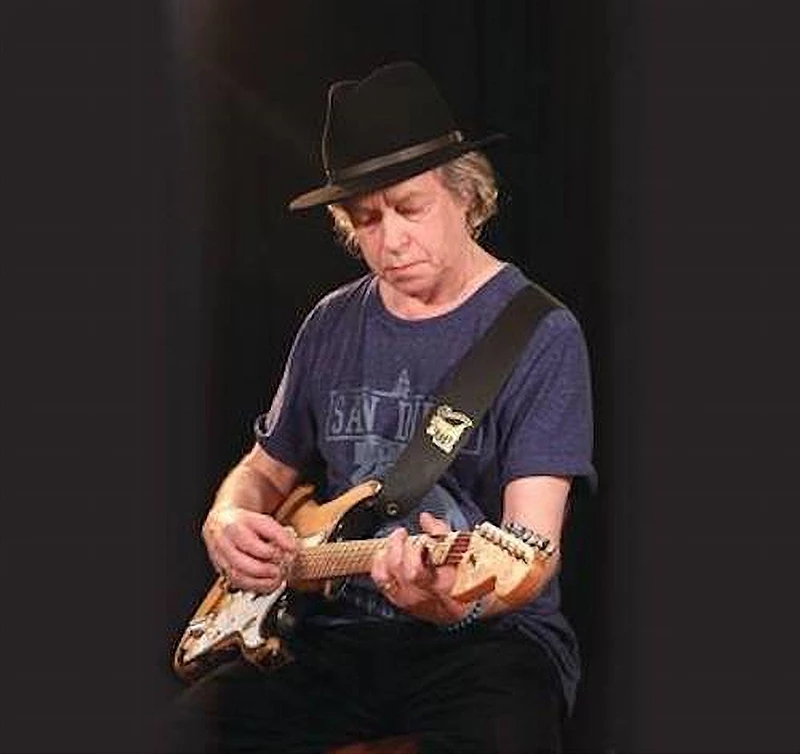
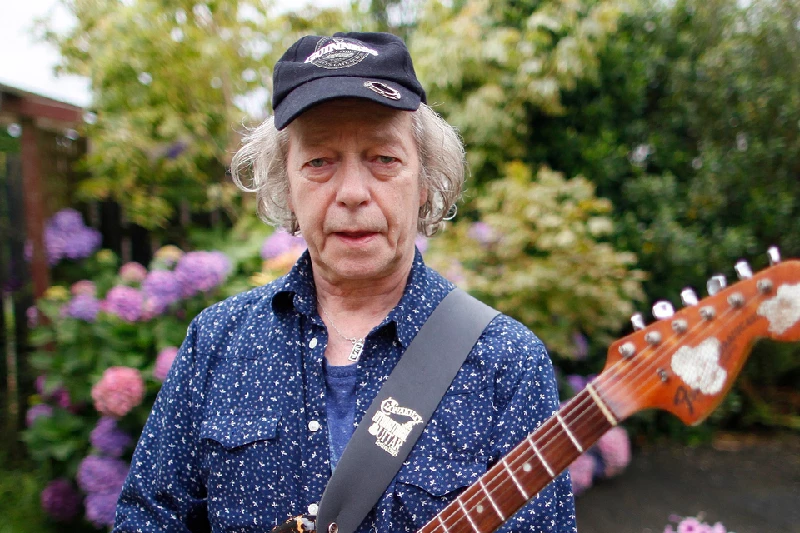
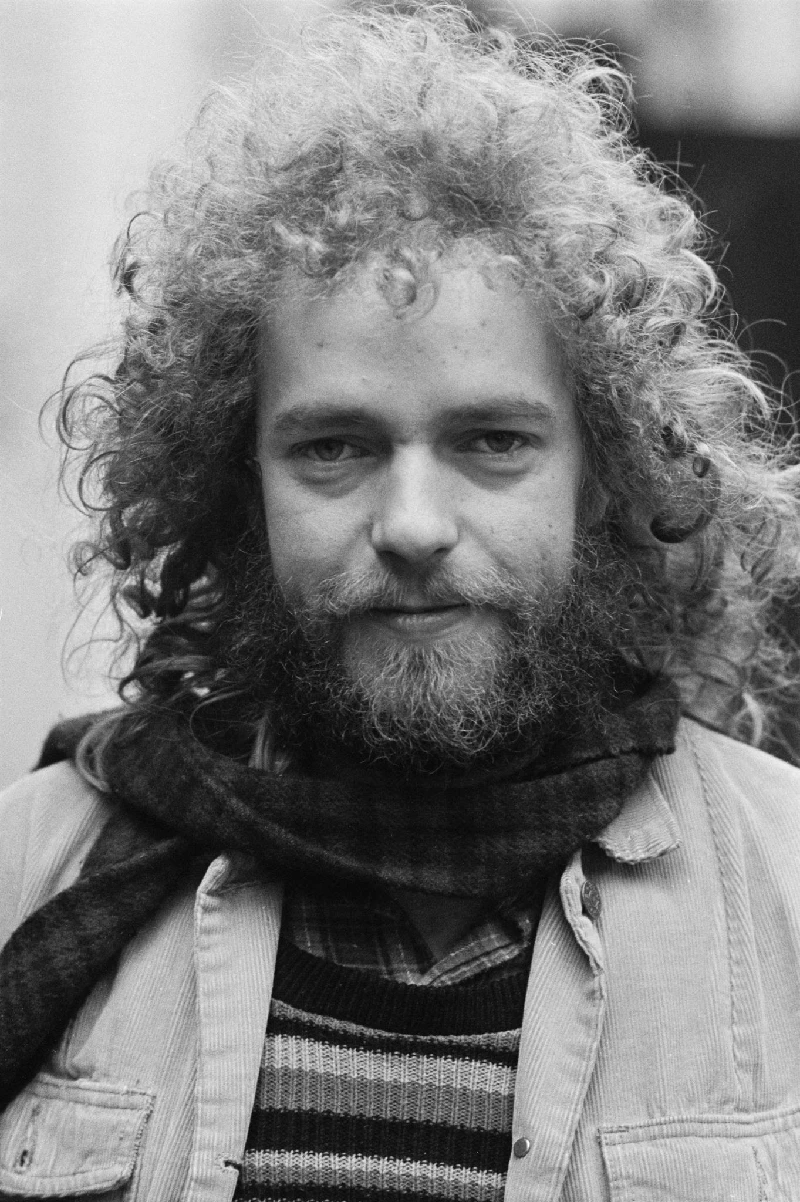
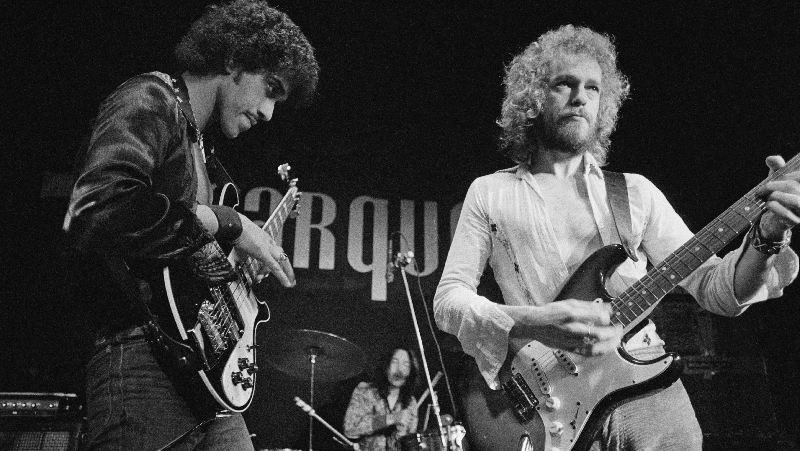
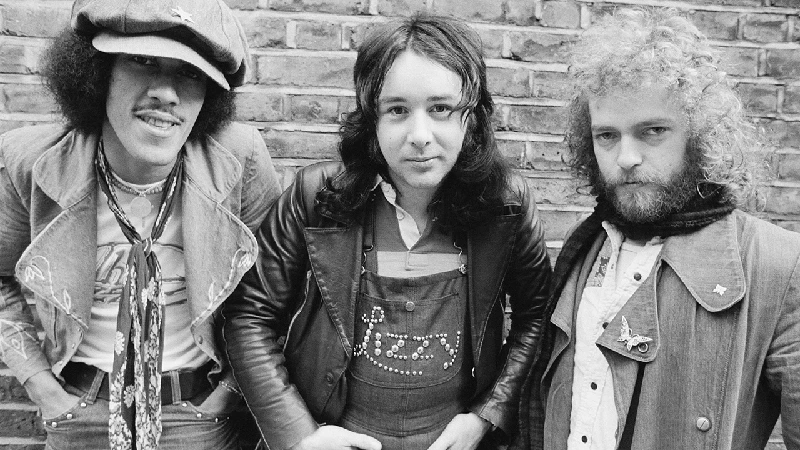
Visitor Comments:- |
| 14915 Posted By: jane, Oklahoma USA on 30 Jan 2025 |
|
Great job, Always like hearing about Eric Bell, guitar extraordinaire! Thank you.
|
intro
Legendary guitarist Eric Bell chats to Adam Coxon about working with Van Morrison in Them and Phil Lynott in Thin Lizzy, his fifty year career and his autobiography 'Remembering'.
most viewed articles
current edition
Spear Of Destiny - InterviewRobert Forster - Interview
Fiona Hutchings - Interview
When Rivers Meet - Waterfront, Norwich, 29/5/2025
Carl Ewens - David Bowie 1964 to 1982 On Track: Every Album, Every Song
Brian Wilson - Ten Songs That Made Me Love...
Chris Wade - Interview
Pistol Daisys - Waterfront, Norwich, 29/5/2025
Credits - ARC, Liverpool, 17/5.2025
Nils Petter Molvaer - El Molino, Barcelona, 24/4/2025
previous editions
Heavenly - P.U.N.K. Girl EPBarrie Barlow - Interview
Boomtown Rats - Ten Songs That Made Me Love....
Dwina Gibb - Interview
Oasis - Oasis, Earl's Court, London, 1995
Sound - Interview with Bi Marshall Part 1
Manic Street Preachers - (Gig of a Lifetime) Millennium Stadium, Cardiff, December 1999
Beautiful South - Ten Songs That Made Me Love...
Trudie Myerscough-Harris - Interview
Serge Gainsbourg - Ten Songs That Made Me Love...
most viewed reviews
current edition
Peter Doolan - I Am a Tree Rooted to the Spot and a Snake Moves Around Me,in a CircleGarbage - Let All That We Imagine Be The Light
Vinny Peculiar - Things Too Long Left Unsaid
Little Simz - Lotus
John McKay - Sixes and #Sevens
Suzanne Vega - Flying With Angels
HAIM - I Quit
Morcheeba - Escape The Chaos
Vultures - Liz Kershaw Session 16.06.88
Billy Nomates - Metalhorse
Pennyblackmusic Regular Contributors
Adrian Janes
Amanda J. Window
Andrew Twambley
Anthony Dhanendran
Benjamin Howarth
Cila Warncke
Daniel Cressey
Darren Aston
Dastardly
Dave Goodwin
Denzil Watson
Dominic B. Simpson
Eoghan Lyng
Fiona Hutchings
Harry Sherriff
Helen Tipping
Jamie Rowland
John Clarkson
Julie Cruickshank
Kimberly Bright
Lisa Torem
Maarten Schiethart